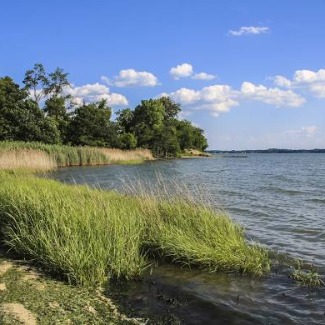“Just imported from Africa, a parcel of choice Negroes, which will be exposed to sale this day, on board the ship “Koulikan”at Nottingham, on Patuxent River, for bills of exchange, current money, or crop tobacco…”
- Maryland Gazette, May 8, 1751
The Port of Nottingham in Prince George’s County, Maryland, became a hub for the trans-Atlantic human trade in the mid-eighteenth century. Driven by the wealthy planter class and the need for a massive workforce to support the innumerable tobacco plantations and evolving commercial centers along the Patuxent River, nine British-flagged vessels docked at Nottingham between 1751 and 1771.
Aboard the nine ships were 1,826 captive Africans - Igbo, Kongo, Wolof - who had become unwilling migrants to Tidewater Maryland. These were the survivors. Three hundred and seven (307) perished, their bodies confined to the bloody, watery grave of the Atlantic Ocean.
Among the nine ships was the “Charming Molly,” registered in London, and captained by James Beard. He purchased unnamed captives at Gorée and St Louis, Senegal and The Gambia. The ship began the Middle Passage journey January 2, 1762 and reached Nottingham August 25, 1762. Beard, crew, and his human cargo left West Africa with 223 people, 183 disembarked; meaning 40 souls were lost during the “Charming Molly’s” 235 days at sea.
My preliminary analysis of the trans-Atlantic Slave Trade – housed at Emory University, was conducted in 2023. Prior to this research, limited information was known about the number, ethnicity, and port of origin of the first enslaved Africans who touched American soil in Prince George’s County on April 25, 1751 – a mere 25 years after the County was established by an Act of the Maryland General Assembly.
Enslaved Africans Disembarked in Nottingham, Maryland
Between 1751 and 1771
Praising the Past


To date, the Middle Passage Ceremonies and Port Markers Project (MPCPMP) has identified more than 80 documented trans-Atlantic arrival sites in the U.S, including Sapelo Sound, Georgia, where the first shipment of captive Africans arrived on September 29, 1526, almost 100 years before the 1619 Point Comfort/Jamestown arrival
A local consortium, The Nottingham Middle Passage Remembrance Project, will link with MPCPMP, the Maryland Routes of Enslaved Peoples Trail, as well as the UNESCO Routes of Enslaved Peoples: Resistance, Liberty, and Heritage, which has designated 43 U.S. arrival locations as a “Site of Memory.” UNESCO recognizes these landmarks as internationally significant because of their cultural and historical importance to the collective interests of humanity.
The Nottingham Middle Passage Remembrance Project will memorialize these and other ancestors who have long gone unsung. The day of the memorial service depends upon many factors including raising funds for a marker and ceremony.
Donate: Middle Passage Ceremonies and Port Markers Project (MPCPMP)
A local consortium, The Nottingham Middle Passage Remembrance Project, will link with MPCPMP, the Maryland Routes of Enslaved Peoples Trail, as well as the UNESCO Routes of Enslaved Peoples: Resistance, Liberty, and Heritage, which has designated 43 U.S. arrival locations as a “Site of Memory.” UNESCO recognizes these landmarks as internationally significant because of their cultural and historical importance to the collective interests of humanity.
The Nottingham Middle Passage Remembrance Project will memorialize these and other ancestors who have long gone unsung. The day of the memorial service depends upon many factors including raising funds for a marker and ceremony.
Donate: Middle Passage Ceremonies and Port Markers Project (MPCPMP)
Advertisers | Contact Us | Events | Links | Media Kit | Our Company | Payments Pier
Press Room | Print Cover Stories Archives | Electronic Issues and Talk Radio Archives | Writer's Guidelines






